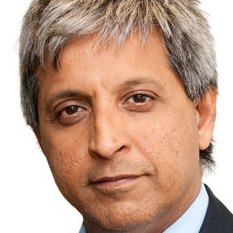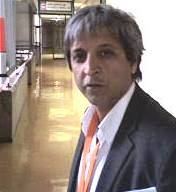
Lifestyle/Community

Adam Habib’s 1500-word blog in full
PROFESSOR ADAM HABIB
Let us not become what we have always hated
Wits University decided to remove Mr Mcebo Dlamini as President of the Students’ Representative Council (SRC) only after carefully considering the facts. We recognised that it would be a controversial decision but it was one that had to be taken. Some of the reactions to this decision and the racialisation of the matter, particularly on social media, have been disturbing. This article is intended to engage the criticisms that have been raised, mainly by the advocates of transformation, so that we can deliberate on the issues involved and learn from each other.
First, let me address why I allowed Mr Dlamini to remain in office after he was found guilty of misconduct by an independent disciplinary committee in February and sentenced to one year suspended exclusion. The SRC Constitution clearly states that a student who is found guilty of misconduct ceases to be a member of the SRC. The student can appeal to the Vice-Chancellor to provide a concession in this regard.
Mr Dlamini requested to remain in office while he took the decision of the disciplinary committee to review. I agreed, provided that the legal process was completed in 14 days. However, the legal process took longer than anticipated. I met with Mr Dlamini three days before he made his comments on Hitler and requested him to stand down. I explained that the concession had been made for a stipulated period only and that, after that period, the rules of the SRC Constitution had to be enforced.
 It is important for the members of the SRC to abide by their own Constitution. Otherwise, it creates a dangerous precedent – it suggests that the rules do not apply to the political elite on campus. Many who claim to draw inspiration from Fanon are missing this point. Fanon’s fundamental tenet was that the real tragedy of post-colonialism was that the political elite, following the colonialists, saw themselves in a class of their own to which the rules did not apply. This critique is often raised against the political elite in South Africa – the rules get suspended when they apply to the rich or the politically connected. We cannot allow this to happen.
It is important for the members of the SRC to abide by their own Constitution. Otherwise, it creates a dangerous precedent – it suggests that the rules do not apply to the political elite on campus. Many who claim to draw inspiration from Fanon are missing this point. Fanon’s fundamental tenet was that the real tragedy of post-colonialism was that the political elite, following the colonialists, saw themselves in a class of their own to which the rules did not apply. This critique is often raised against the political elite in South Africa – the rules get suspended when they apply to the rich or the politically connected. We cannot allow this to happen.
Second, there are some who say that Mr Dlamini’s comments on Hitler influenced my thought. Let me be candid: I believe that Mr Dlamini’s comments violated the values of Wits University and if there had been legal grounds on which to act, I would have exercised them immediately. Instead, I referred the matter to the Legal Office for investigation and must allow the University’s policies and procedures to take their course. However, I did act on the fact that Mr Dlamini was found guilty of an offence committed prior to his ascendance to office. The accusation that I did this because of the Hitler comments is not supported by the evidence. As stated, I began the process three days before he uttered his Hitler remarks.
Third, there are some who believe that I have undermined freedom of speech by acting against Mr Dlamini. I have always held that it is important for a university to create a free space for the exchange of ideas, even if we are not comfortable with some of those ideas. However, leaders are not merely individuals who express their own thoughts. Rather, they speak for and influence the collective. When President Jacob Zuma made remarks against homosexuals, many argued that it was an inappropriate defence to say that he had acted in his personal capacity. This is because as President and first citizen, he is committed to reflecting the values of our Constitution. Similarly, an SRC President is committed to upholding the values of the university. Leadership comes with responsibilities as much as it has privileges.
 There have been two other accusations. The first is that I am critical of Hitler but not Rhodes. This is untrue. I have publicly stated that Rhodes was a brutal criminal. It is true that I do not agree with sanitising history by removing statues. However, I did suggest that we could have established a second memorial, next to the Rhodes statue, that honoured his victims and told the story of his brutality. Who says that memorials are only about celebrations? They can as easily be an indictment. Even if one does not agree, my position is not about ignoring Rhodes but rather representing him for the brute that he was.
There have been two other accusations. The first is that I am critical of Hitler but not Rhodes. This is untrue. I have publicly stated that Rhodes was a brutal criminal. It is true that I do not agree with sanitising history by removing statues. However, I did suggest that we could have established a second memorial, next to the Rhodes statue, that honoured his victims and told the story of his brutality. Who says that memorials are only about celebrations? They can as easily be an indictment. Even if one does not agree, my position is not about ignoring Rhodes but rather representing him for the brute that he was.
There is another view that I am a prisoner of Jewishness or whiteness. I find this distressing because of its inherent racist assumptions. Again, let me be transparent. I am an open critic of the Israeli state. I have written about the Gaza war and Israel’s atrocities. However, my criticism of the Israeli state cannot translate into a hatred of Jews, just as my criticism of the United States government cannot translate into a hatred of Americans. When we allow this, we violate the fundamental values of our Constitution, but also our liberation itself. The liberation movement, across the ideological divides, has always been driven by the goal of a common humanity. We may have differed on the role of whites in the struggle, but the goal of a common humanity – Ubuntu, if you prefer – was never in question.
This means that our dislike of the behaviour of the Israeli state cannot translate into a love for Hitler. Neither can our critique of the colour blind approach of mainstream liberalism translate into a crude racism against whites. This is lazy thinking and mindless activism that can have no progressive outcome. Instead, it runs the danger of ensuring that Victims become Killers, to paraphrase the title of Mahmood Mamdani’s book on the Rwandan genocide.
Finally, there are some who have accused Wits University of failing to transform. Again, is this a fair charge? In the last two years, we have changed our admissions policy for medicine to include more talented students from rural and urban quintile 1 and 2 schools; we have introduced the Equality Scholarships for talented students from the most marginalised schools; and through the initiatives of my predecessors, our student body is diverse and cosmopolitan, with over 75% Black students and about 3 000 international students.
Does this mean that our transformation agenda is resolved? No! We still face major challenges. We need more Black academics. Our demographic representivity and cosmopolitanism has not translated into social inclusion. Black students still feel marginalised even though they constitute a majority, suggesting that our institutional culture is seriously deficient. The outsourcing of certain services at Wits has led to the exploitation of the most vulnerable of our people. This all needs to be addressed, bearing in mind the constraints and trade-offs that we confront.
But an advance on transformation cannot be premised on the philosophical impulses of a racial and ethnic essentialism. Neither can it be premised on colour blindness. We have to recognise that we come from a racialised history with consequences that translate into our present. Responsiveness to transformation has to proactively confront our racial legacies and affirm the victims of apartheid. This is the real stuff of contemporary transformation. But it need not, and should not, translate into a racism and racial chauvinism. It is a deep injustice to both Biko and Fanon when their philosophy is interpreted in a racial essentialism that is typical of Fascist parties and Apartheid’s Bantustan leaders.
Transformation requires action, but also deep deliberation. The assumption that the time for thinking is over is a dangerous trend. It is a valorisation of a mindless activism and a populism that could lead to the very future that we have always abhorred. This is why the philosophical assumptions of our transformation agenda are no small matter. They are to ensure that we do not become the very thing that we have always hated.
- Prof. Adam Habib is the Vice-Chancellor and Principal of Wits University




